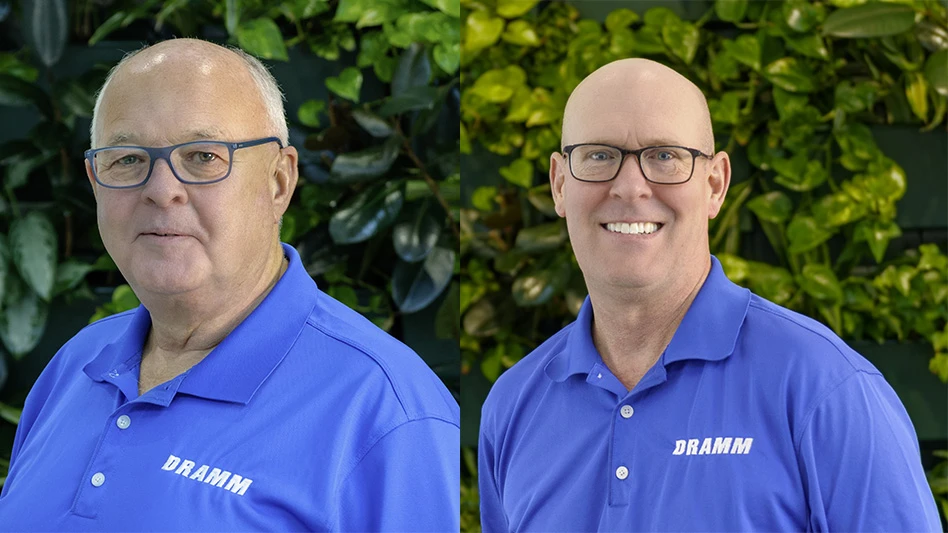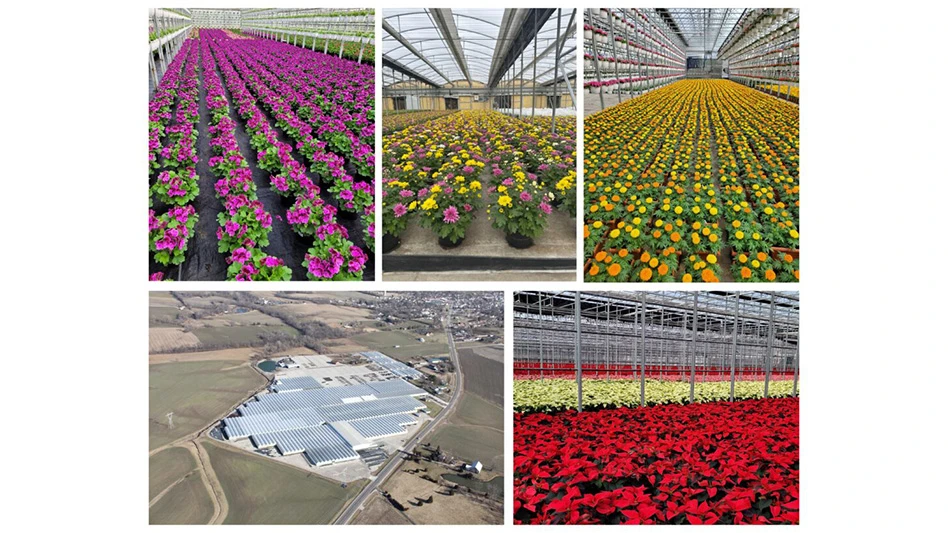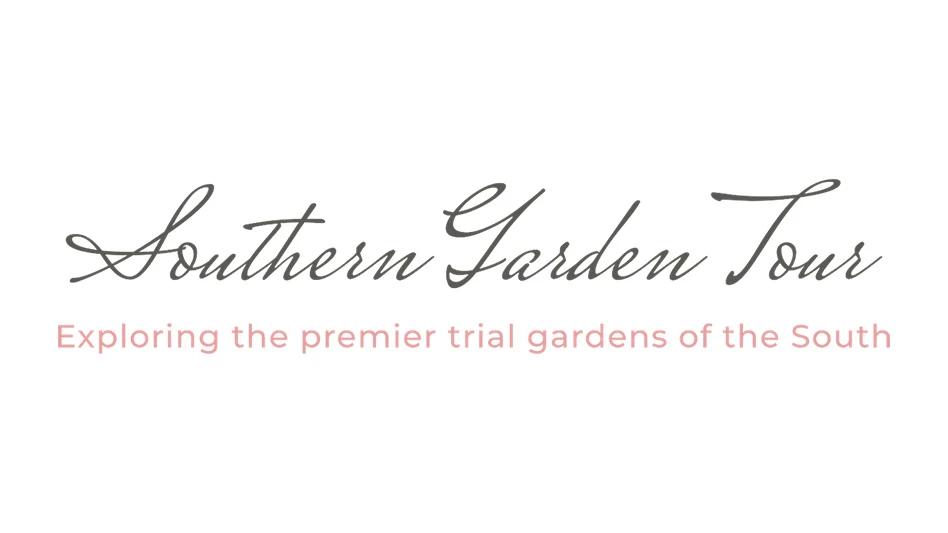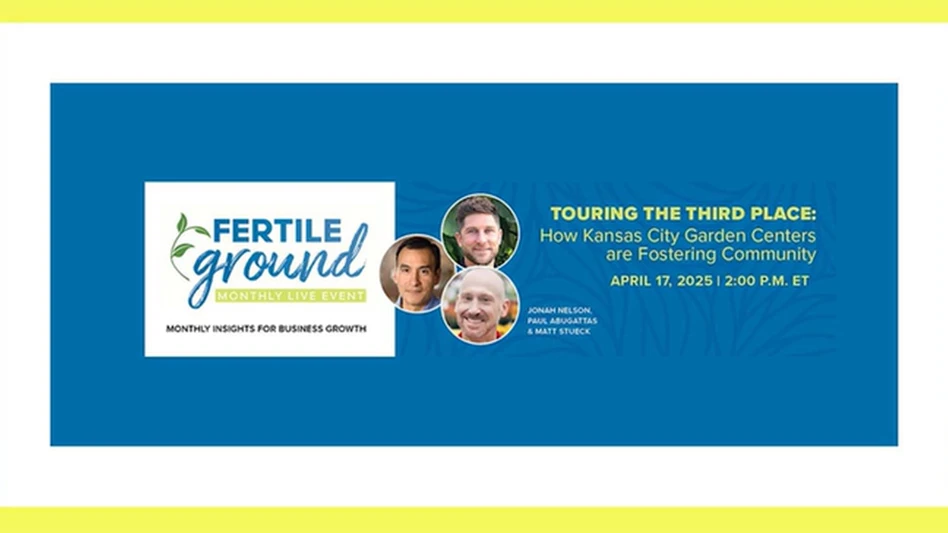
Photos courtesy of Eldergrow.
In recent years, headlines splashed across the internet have heralded the possibility of a cure for diseases like Alzheimer’s and other forms of dementia. And as drug trials and genetic research progress, the future might be kind enough to provide scientists with a cure. However, waiting for the future is not an option for the population suffering the most from these diagnoses: the elderly. Many individuals in this population cannot live independently, and seniors’ needs are often under-served. Per the Population Reference Bureau, there are approximately 5.8 million Americans living with Alzheimer’s disease, and that number could more than double to 13.8 million by the year 2050.
Enter Orla Concannon, who tapped into her background and used her compassion to help this under-served community thrive. In 2015, she founded Eldergrow, which is a company that provides mobile indoor gardens to senior living communities, many of which require specialized or memory care due to dementia-related diseases.
“I want to support our elder community at large. It's something I'm really passionate about because they are an under-served population,” says Concannon, who previously worked for The Alzheimer Society of Ireland.
Concannon holds dual citizenship in Ireland and the U.S., and now resides in Seattle, Washington, where Eldergrow’s headquarters are located. She notes that while she is a big nature enthusiast, the idea came mostly from her work through the senior living sector. She saw that residents had difficulties accessing nature due to limited mobility and inclement weather and launched Eldergrow to bring nature indoors to residents and provide them with meaningful connections to nature.

The Eldergrow gardens are filled with fragrant herbs and colorful plants, offering sensory stimulation opportunities for senior living residents. Photo courtesy of Eldergrow.
Idea into action
The indoor mobile gardens are built with assistance from Eldergrow’s unique partners, who are job-trained disabled veterans and other adults living with disabilities.
Concannon finds this partnership special to her business because the work helps other vulnerable adult communities as well. The gardens are assembled in Washington, where Eldergrow’s partners are also located. After assembly, they are shipped in crates to their new “home,” where they permanently stay for the community to enjoy.
Eldergrow has two indoor mobile gardens: a therapeutic sensory garden and a culinary herb garden, both of which contain a grow light, non-toxic plants and organic soil.
“The therapeutic horticulture program is a full-service program where our local educators go on-site, and they actually deliver the therapeutic programming to the residents living in that community,” says Concannon. This garden is specially tailored to serve memory care residents.

An Eldergrow Educator at Columbia Lutheran Home in Seattle works with a resident to improve motor skills. Photo courtesy of Eldergrow.
Her team develops curriculums — all original — and twice a month the educators visit the community and engage residents in therapeutic sessions, which can be anything ranging from a traditional gardening classes, culinary harvest classes or even garden art. “It's a diverse curriculum, it's not just straight gardening. We really want to impact as many residents as we can with lots of different types of ideas,” she explains.
The therapeutic horticulture gardens can be enjoyed by visiting family members as well, and relatives of all ages are encouraged to partake in signing up for classes.
The second garden is a culinary herb garden. This one differs slightly from the full-service therapeutic horticulture garden because it’s designed for residents to “Do It Yourself.” Educators don’t physically visit these communities, but they still offer support via video chat by using FaceTime or WhatsApp. They can look at the garden remotely and coach staff members, such as the activities director or the chef, on how to manage and harvest the garden.
“Every month we ship them some fresh herbs and we provide activities and recipes for those communities to use in tandem with that delivery,” says Concannon.
Concannon notes that the DIY culinary herb program is ideal for another population in senior living — independent (IL) or assisted-living (AL) residents. “I want to support all elders, so this reaches another population in the community setting.”
Eldergrow currently has a team of 75 educators, all of whom have former gardening experience. Concannon praises her team and says that previous experience working with vulnerable populations is also valued. Concannon says that the profile of an educator is outgoing, and they must have the ability to project their voice, since a lot of community members are hard of hearing.

Eldergrow Educators visit senior living communities twice a month to provide wellness classes and build relationships with residents. Photo courtesy of Eldergrow.
By the numbers
Currently there are almost 200 mobile gardens across 21 states. Last year, Eldergrow impacted more than 11,000 seniors, and helped 90% of residents to fully or partially meet their therapeutic goals. Additionally, 85% of those residents improved or maintained a positive emotional state. For Eldergrow to deliver a good product and keep up with high demand, Concannon hopes to find more growing partners. For the time being, they only have one — something she hopes to remedy soon.
“Eldergrow currently has a nursery partner in the Southeast and is looking for more nursery centers throughout the U.S. to help grow and ship herbs to our customers,” she says.
With the hope of securing more nursery partners and developing new programs, the future is busy and bright for Eldergrow. Looking forward, Concannon wants to continue to help as many elders as she can, not just the ones who are living in residential communities.
“There's any number of elders living at home, or a lot of caregivers out in the world who are supporting their loved ones at home,” she says. “We're definitely intent on figuring out more ways to help all elders, whether they're in the senior living community or at home.”
Latest from Garden Center
- GIE Media Horticulture Group wins five regional 2025 Azbee Awards of Excellence
- Terra Nova Nurseries introduces rust-free and disease-resistant heucherella
- John T. Nickel, founder of Greenleaf Nursery Co., passes away at 89
- Garden Media Group announces sixth annual Women in Horticulture Week
- Star Roses and Plants announces National Knock Out Rose Day
- The Growth Industry Episode 4: How federal budget cuts are affecting horticulture nonprofits
- Pennsylvania Horticultural Society shares top gardening trends from 2025 Philadelphia Flower Show
- California Spring Trials 2026 dates announced





